Search for academic programs, residence, tours and events and more.
Published in February 2022
Every Feb. 11, the International Day of Women and Girls in Science provides an opportunity to celebrate the critical role that women and girls play in science and technology, as well as promote equal access and the participation of women and girls in scientific fields.
Since 2012, the Centre for Women in Science (WinS) at Wilfrid Laurier University has championed women in science, technology, engineering, arts and mathematics by building an inclusive scientific community for Laurier faculty, staff and students through research, action and communication.
Below, seven women in the Laurier community share their experiences with WinS and how they are empowering young women to become involved in the sciences.

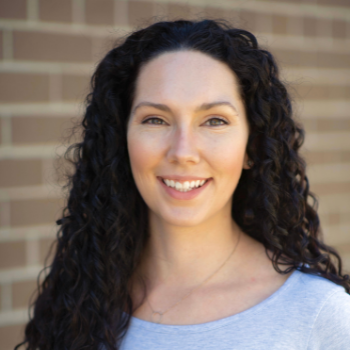
My research investigates how people adapt body orientation and movements to avoid collisions with other people and how to safely navigate in complex environments. My most recent study compared collision-avoidance strategies and gaze behaviour between athletes and non-athletes.
My passion for science and research is rooted in my childhood involvement in sports. Incurring several sports-related injuries created my desire to better understand injury prevention and rehabilitation and led me to pursue an undergraduate degree in human kinetics at the University of Guelph. My research passion surfaced during my time as a student athlete on the women’s varsity rugby team. Movement strategies and the athleticism of rugby fascinated me and has influenced some of my research on collision avoidance.
The Centre for Women in Science at Laurier provides me with an environment where I feel safe, welcome and celebrated. WinS fosters a strong sense of community by providing Laurier students with informative seminars, award opportunities, meetups and a place to discuss research and receive constructive feedback. The centre has also helped me connect to – and feel supported by – female colleagues in science, which has been invaluable while navigating graduate studies online amid the pandemic.
I have always liked the phrase “empowered women empower women.” To attract and retain young women in the sciences, we need to ensure that women are represented throughout the sciences and that systemic barriers to this are removed. I strive to create environments that are inviting for women and girls by promoting and publicizing the work and research of other brilliant women whenever possible, especially here at Laurier.
I completed my fourth-year thesis on the use of mental health resources among LGBT2Q+ Canadians, under the supervision of Professor Todd Coleman. I also supported the Centre for Women in Science’s WinSights Medium page – which features easy-to-read article summaries about women in science, technology, engineering and mathematics, as well as the gender gaps that remain prevalent in those fields – by writing article summaries in plain language for non-scientific readers.
I have always been fascinated by the human body and the millions of tiny chemical reactions that allow us to live. This sparked my passion for the sciences and health care. I knew I wanted to make a difference and contribute to advancements in medicine, which has led me to graduate studies at the University of Toronto. However, throughout my education, I noticed that scientific information was not written for public consumption. Many scientific articles use vocabulary that everyday readers may not understand, which means they won't fully benefit from the research being described.
Communicating scientific research articles in short summaries using plain language is the foundation of the WinSights Medium page. Although translating articles into plain language is a difficult task, scientific communication and knowledge translation is crucial to ensure the amazing discoveries made by scientists can be shared with a broad audience.
WinS offers a place for people from different academic programs to learn more about how powerful it is to be a woman in science. My involvement with WinS taught me how to be a role model to young women in science, gave me the confidence to share my expertise on certain topics with others and grew my skill set in ways I never thought possible.
Growing up without any family members employed in the sciences, I struggled to really believe if this was the path for me. Being female made it more difficult to find role models. My advice for young women who want to get involved in the sciences is to never shy away from what you are truly interested in and what makes you happy. Life is simply too short to not dive into something you want to do just because someone says you can’t. Never be afraid to discover all that you are capable of because you will accomplish more than you could ever imagine.
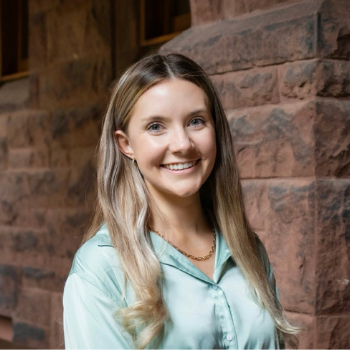
"To attract and retain young women in the sciences, we need to ensure that women are represented throughout the sciences and that systemic barriers to this are removed."
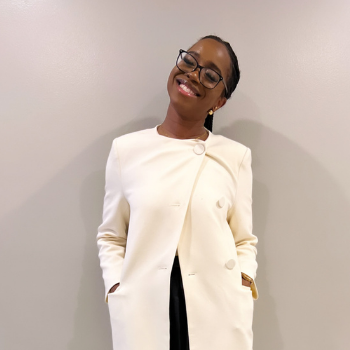
I am interested in research that explores the impact of community upbringing on the mental health of athletes, particularly when they are recovering from injuries.
I love understanding how things work and function at their most basic level. I have always been a curious person and science is the field of study that can answer all of my questions.
WinS allows me to see what other women in science are doing and learn about female scientists who are new to me, as well as those who have not received the proper recognition. Women in science do not always get the recognition they deserve.
I can empower young women to get involved in the sciences by simply existing in science and constantly evolving my knowledge in my field. To empower others, I must empower myself. When my understanding is strong, I can show others how interesting and exciting science is and can be.
My graduate research is focused on plant taxonomy and systematics. In my lab, I work with a group of parasitic plants called dodder. Although some dodder species are important keystone species in their ecosystems, some are serious pests for many crops. By learning more about dodder species – their relationships, evolution and classifying and identifying different species – we can better understand which species are natural and which are invasive and harmful to their ecosystems.
My parents inspired me to pursue the sciences. My dad encouraged my natural curiosity of the world around me while my mom nurtured my love of learning and encouraged me to learn more about the topics I was interested in, like plant biology.
The most important thing the Centre for Women in Science does for me is provide a scientific community of like-minded women. The centre's staff support my peers and I by asking what they can do to help and support us as women in a male-dominated field.
I am a volunteer judge for the Waterloo Wellington Science and Engineering Fair, which is open to students in grades seven to 12 in Waterloo Region and Wellington County. By engaging with the students and sharing my science fair experiences, I hope to normalize women in science. I also work as a teaching assistant at Laurier, participate in student panels and support other females seeking careers in science.
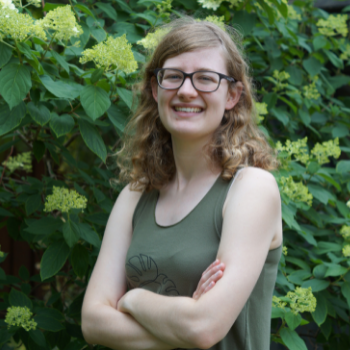
"Never be afraid to discover all that you are capable of because you will accomplish more than you could ever imagine."
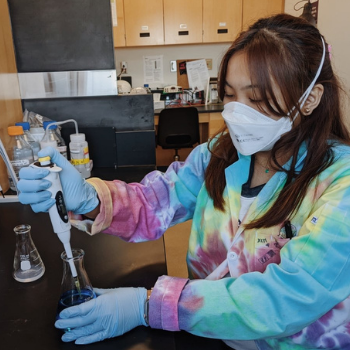
My master’s research examines the impact of total suspended solids (TSS) on the gill physiology of freshwater fish species. Results from the project help to establish a novel risk assessment tool for the impact of TSS on fish health and fitness.
My desire to learn new things and solve problems has led me to science research and I have enjoyed every aspect of being in the lab. This continues to motivate me to pursue a career in science.
The Centre for Women in Science at Laurier provides a helping hand and unwavering support on my research journey. The centre also promotes gender equity and inclusion in the field of science, which is a great way to raise engagement.
I can empower young women to pursue the sciences by sharing my story as a researcher and demonstrating how a career in science can help build a strong foundation for their futures.
I majored in Health Sciences during my time at Laurier. Most of my work with the Centre for Women in Science focused on inequities in STEM and ways to improve equity, diversity and inclusion. As a law student at Dalhousie University (Schulich School of Law), my current research interests are focused on finding ways to protect the scientific discoveries of women in STEM fields through intellectual property and policy, as well as the intersection of law and technology.
As an analytical person, I get excited by the types of problems that science poses. Pursuing science education opened a lot of doors and created opportunities that I wouldn't have found elsewhere. A science education allows you to develop transferable skills for whichever career path you choose – in the sciences or other fields. As I pursue a career in law, the skills I learned as a science student, such as creative problem solving, attention to detail and perseverance, serve me daily and will continue to do so throughout my career.
The whole WinS team is comprised of some of the smartest, kindest women I have had the pleasure of learning from. The centre is one of the most supportive places I have worked, and I hope more people in the Laurier community can experience what WinS provides.
I can empower other young women to get involved in the sciences by being a good role model. Young women feel inspired and empowered to pursue fields they see themselves represented in. However, the current culture within STEM can be challenging for women. It needs to change and better support women because better representation leads to better science.
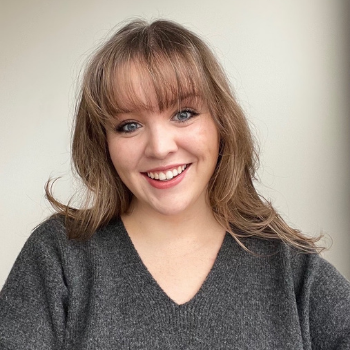
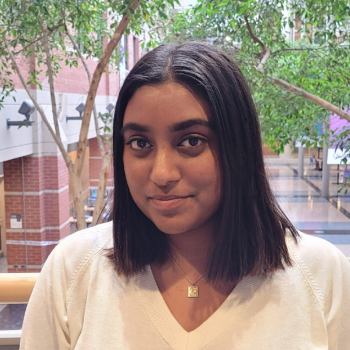
During my undergraduate studies in Biology, I investigated the molecular genetics of the immune system in tomato plants after infecting them with a bacterium called Pseudomonas syringae and subjecting them to elevated temperatures.
I’ve always thought science was cool and I loved doing hands-on experiments as a kid. I pursued an education in science to contribute to a better society. Biology is such an important field with extremely relevant applications.
The Centre for Women in Science provided a space for my peers and to share our thoughts and gain new perspectives on scientific issues.
The best way I can motivate young women to get involved in science is to ensure the working conditions for women currently in the field are sustainable. Women working in STEM careers are role models to younger women, which can make science an attractive career choice. Ensuring that women are compensated fairly and treated as valued employees, not as “diversity hires,” by their employers and colleagues is paramount for success in their careers.